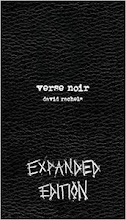skip to main |
skip to sidebar

Big City Girl is not a particularly accurate title for this book, and the cover illustration and tag ("Joy didn't belong in the hill country . . . but there she was") are rather misleading, too. Yes, Joy used to live in Houston and now she lives in the Texas sticks, but she does not spend the novel sexually tormenting the yokels, as the book's cover would have you believe. No doubt all of this was an effort to capitalize on the million-selling success of Charles Williams' debut novel, Hill Girl. In any case, Big City Girl, his second novel, is a clear step forward artistically from its predecessor. Though both novels mine the literary landscape of Erskine Caldwell, Hill Girl is concerned primarily with Caldwellian sexual titillation while Big City Girl moves closer to the world of criminal noir. Well executed and well worth seeking out. Grade: B

The underbelly of Los Angeles never comes alive in this novel as it does in Farewell, My Lovely, but the plot is less frenetic and more comprehensible. The real attraction, Philip Marlowe as world-weary, wisecracking knight errant, is in equally fine form in both books. Grade: A-

David Goodis is commonly ranked in the top tier of noir novelists, and The Moon in the Gutter is commonly ranked among his best work. One recent example: in The Rough Guide to Crime Fiction (2007), Barry Forshaw cites The Moon in the Gutter as his representative Goodis text in arguing that, of all the noir novelists, "Goodis comes the closest to the existential angst of Camus and Sartre." I wish I could see it, but I can't. The main thing I see in The Moon in the Gutter is bad writing. The lesser problem is that Goodis' prose is often painful to read--he strings together limp, cliché-ridden sentences as if he does not remember what his previous sentence was or have any idea what his next sentence will be. The greater problem is that his characters seem to behave as they do because they are in a noir novel and not for other discernible reasons. To Goodis' credit, he does take a valiant stab at noir profundity in the novel's last chapter, but the rest of the book is not there to back it up. In sum, a major disappointment. Grade: D+

A note to noir enthusiasts: Fans of Horace McCoy's They Shoot Horses, Don't They? should not miss Pamela Colloff's essay "A Kiss Before Dying," which has everything to do with McCoy's novel even though it has nothing to do with a marathon dance contest.

Farewell, My Lovely reminded me of Cornell Woolrich in that Raymond Chandler's plot is at least as ridiculous as the plot of any (famously ridiculous) Woolrich novel. What is remarkable is how differently Chandler and Woolrich deal with their own absurdities. The Woolrich strategy is to build a novel whose narrative drive is so intense that readers (hopefully) never notice the plot's defects. The Chandler strategy is just the opposite: His characters spend much of the novel sitting around and trying to puzzle out a plot that ultimately makes no sense. As far as plots go, then, Woolrich may be a more satisfying reading experience, but this is not say that Woolrich's novels are necessarily better than Chandler's. For Chandler, plot is secondary to the careful craft of his prose style and the development of Philip Marlowe's character--both of which make for rewarding reading. Grade: B






